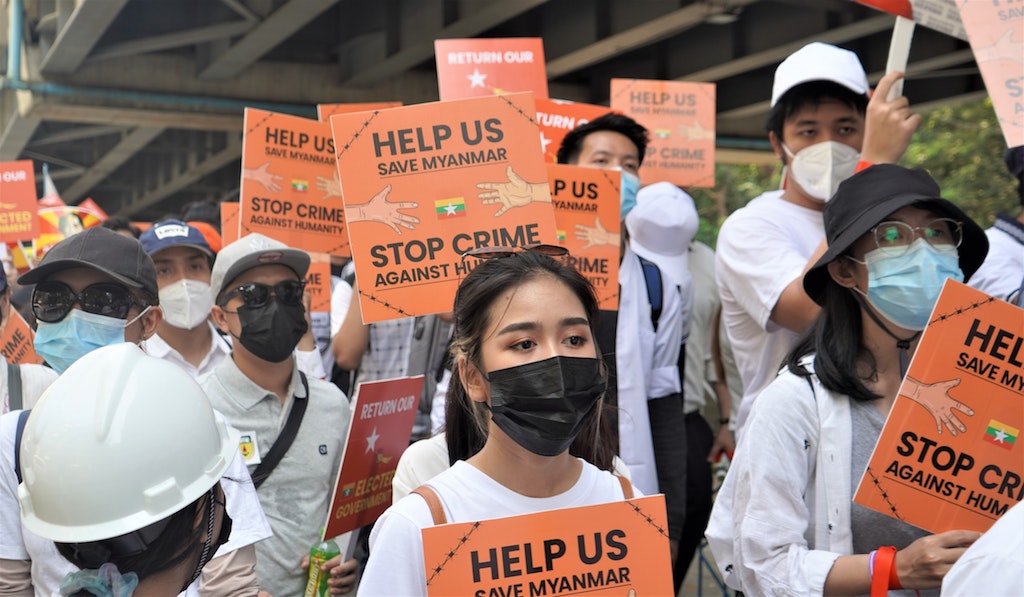At a recent lecture hosted by the LSE Global Health Initiative, Dr Paola Abril Campos Rivera from Mexico’s Tecnológico de Monterrey shared her research on Mexico’s fragmented nutrition strategy. Andrea Jimenez Ortiz, an MSc student in Health and International Development at LSE who attended the talk, shares the key takeaways from the lecture.
Mexico faces a multifaceted nutritional challenge, characterised by a triple burden of malnutrition: high prevalence of undernutrition, micronutrient deficiency and overweight and obesity. Research by Dr Paola Abril Campos Rivera and her team at the Tecnológico de Monterrey shows that nutrition policies in the country are fragmented, with no integrated strategy to tackle the malnutrition burden.
Their findings propose strategic windows of opportunity to improve governance of nutrition in Mexico. The Mexican government must address the system-wide fractures of the health and agricultural system, positioning the consumer – who chooses and uses the products – at the heart of the strategy, ensuring both optimal quantity and quality of foods, improving regulation, and fostering food security, safety and sovereignty.
Mexico’s triple burden of malnutrition
According to the National Health and Nutrition Survey 2021, the prevalence of overweight and obesity in Mexico is 37.4 per cent in 5 to 11 year olds, 42.9 per cent in 12 to 19 year olds and 72.4 per cent amongst the population aged 20 and over. These rates represent a significant increase from those observed in the surveys from 2018 and 2012, particularly in the age groups of 5-11 and 12-19 years. The 2018 survey also highlighted widespread food insecurity in the country, with 55.5 per cent of the population living in situations of food insecurity; 22.6 per cent experience moderate or severe food insecurity.
Patterns of malnutrition differ across the country, with middle-income communities now showing the greatest incidence of obesity, similar to the paths observed in high-income countries such as the UK and USA. The complex interplay of adverse health outcomes, unequal resource distribution, food and water insecurity, and multifaceted socioeconomic disparities unique to the Mexican population, presents nutrition governance as a significant interdisciplinary and intersectoral challenge within Mexico’s political ecology.
Nutrition governance is the ability of institutions and other structures to uphold the principles of participation, responsiveness, and accountability in the realization of the right to food and the achievement of optimal nutrition for all citizens.

Created using data from the Mexican National Health and Nutrition Survey 2021.
Federal and state governance mechanisms in Mexico
Dr Campos’ team analysed two governance mechanisms drawing on the schemes’ outer, inner and innovation settings, the individuals involved, and the processes for their implementation. The Intersectoral Group on Health, Nutrition Environment and Competitiveness, a national, multisector, minister-led, informal mechanism, was analysed and compared to the State Council on Nutrition and Chronic Diseases in Yucatán, a sub-national, top-down, formal mechanism aimed at improving food environments, particularly in educational settings.
The research team encountered similar limitations between the two mechanisms: a lack of budget allocation, scarce involvement of the community, limited transparency, restricted implementation of cross-sector initiatives, weak accountability, a lack of scalable implementation strategies and little engagement of political leaders. Strengths were visible through civil society participation and the involvement of ministries.
Key takeaways from this analysis include the need to increase collaboration, manage conflicts of interest, improve transparency, accountability and strategic planning and establish clear benchmarks for success. To create momentum and encourage further participation, governing bodies must identify and communicate some initial, tangible achievements.
Legislative and policy responses to Mexico’s nutrition challenges
The newly-passed General Law on Adequate and Sustainable Food opens a space for unified dialogue and multisectoral collaboration on nutrition governance in the country. Public policies will hopefully move beyond influencing the decision-making of consumers through package labelling and sugary-drinks taxation – which have shown encouraging figures in improving Mexican’s diet and caloric intake – to address the broader issues and components of malnutrition.
Creating a sustainable, culturally preferred, and nutritious food environment is of utmost importance in health and development policymaking in Mexico. Suitable governance mechanisms must be strategically implemented to achieve this and build a holistic, people-centred approach to nutrition in the country.
This blog was written in response to a lecture given by Dr Paola Abril Campos Rivera at LSE on 12 June 2024, hosted by the LSE Global Health Initiative. In an accompanying blog, Dr Campos outlines the findings of her research.





